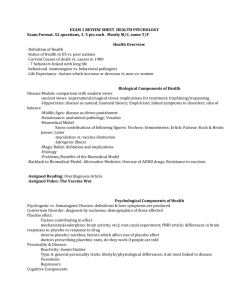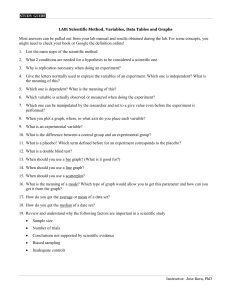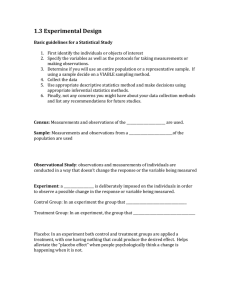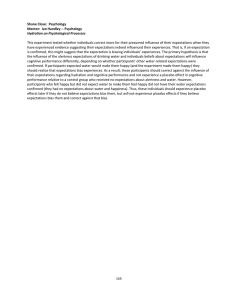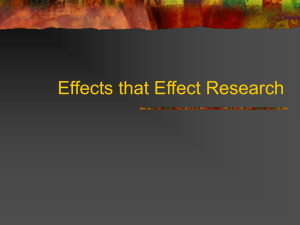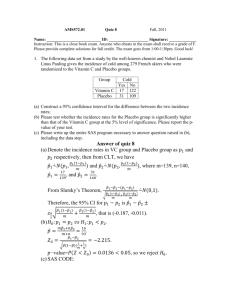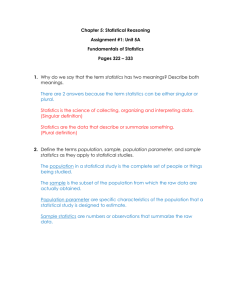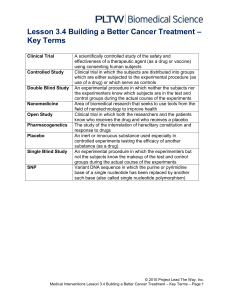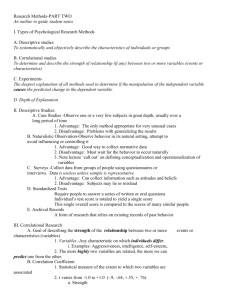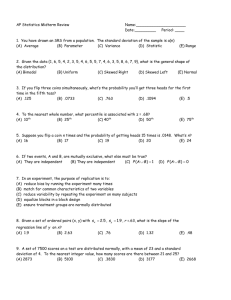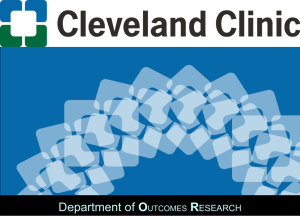EXAM 1 REVIEW SHEET HEALTH PSYCHOLOGY Exam Format: 40
advertisement
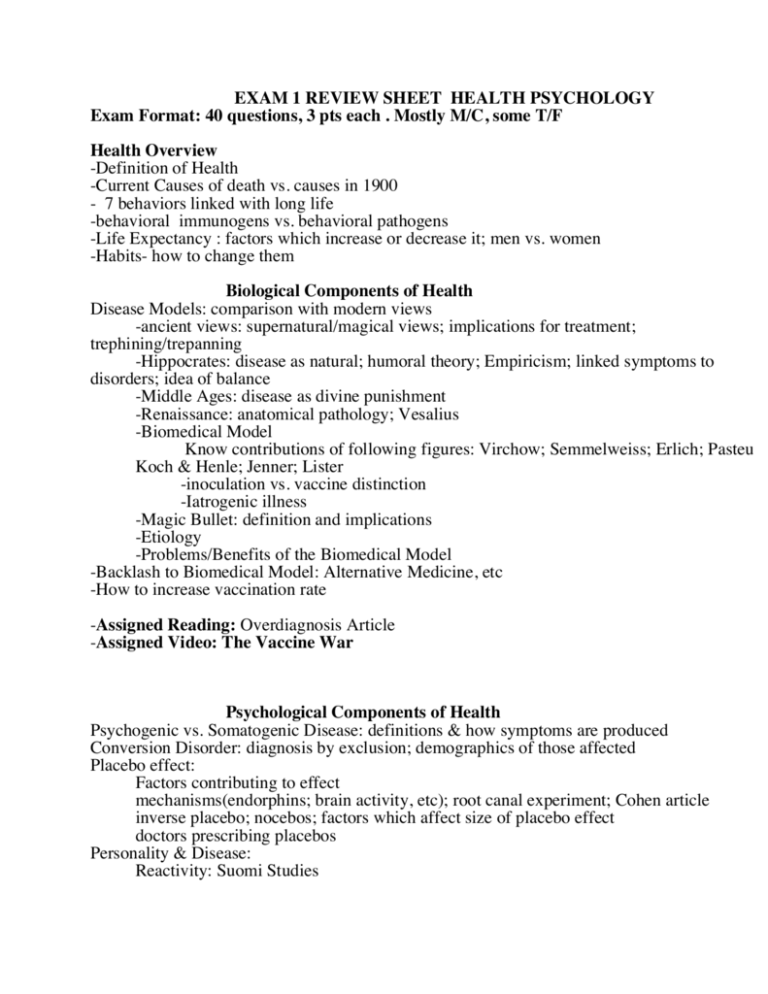
EXAM 1 REVIEW SHEET HEALTH PSYCHOLOGY Exam Format: 40 questions, 3 pts each . Mostly M/C, some T/F Health Overview -Definition of Health -Current Causes of death vs. causes in 1900 - 7 behaviors linked with long life -behavioral immunogens vs. behavioral pathogens -Life Expectancy : factors which increase or decrease it; men vs. women -Habits- how to change them Biological Components of Health Disease Models: comparison with modern views -ancient views: supernatural/magical views; implications for treatment; trephining/trepanning -Hippocrates: disease as natural; humoral theory; Empiricism; linked symptoms to disorders; idea of balance -Middle Ages: disease as divine punishment -Renaissance: anatomical pathology; Vesalius -Biomedical Model Know contributions of following figures: Virchow; Semmelweiss; Erlich; Pasteur; Koch & Henle; Jenner; Lister -inoculation vs. vaccine distinction -Iatrogenic illness -Magic Bullet: definition and implications -Etiology -Problems/Benefits of the Biomedical Model -Backlash to Biomedical Model: Alternative Medicine, etc -How to increase vaccination rate -Assigned Reading: Overdiagnosis Article -Assigned Video: The Vaccine War Psychological Components of Health Psychogenic vs. Somatogenic Disease: definitions & how symptoms are produced Conversion Disorder: diagnosis by exclusion; demographics of those affected Placebo effect: Factors contributing to effect mechanisms(endorphins; brain activity, etc); root canal experiment; Cohen article inverse placebo; nocebos; factors which affect size of placebo effect doctors prescribing placebos Personality & Disease: Reactivity: Suomi Studies Type A: general personality traits; lifestyle/physiological differences; trait most linked to disease Pessimism Repressors Cognitive Components: Attributions( internal vs. external; “surrender” or fatalistic attitude) Heuristics: Availability Bias; Representativeness Bias; Affective Errors; Optimism Bias Number of Doctors and quality of care -Assigned Reading: Chap 15 In Why Zebras Don’t Get Ulcers; Cohen Placebo article Social Components of Health Society Gender Differences: mortality vs. morbidity rates sex- vs. gender-linked factors; behavioral profiles/roles Media Influences: good & bad effects; The Dr. Oz & Jolie Effects
